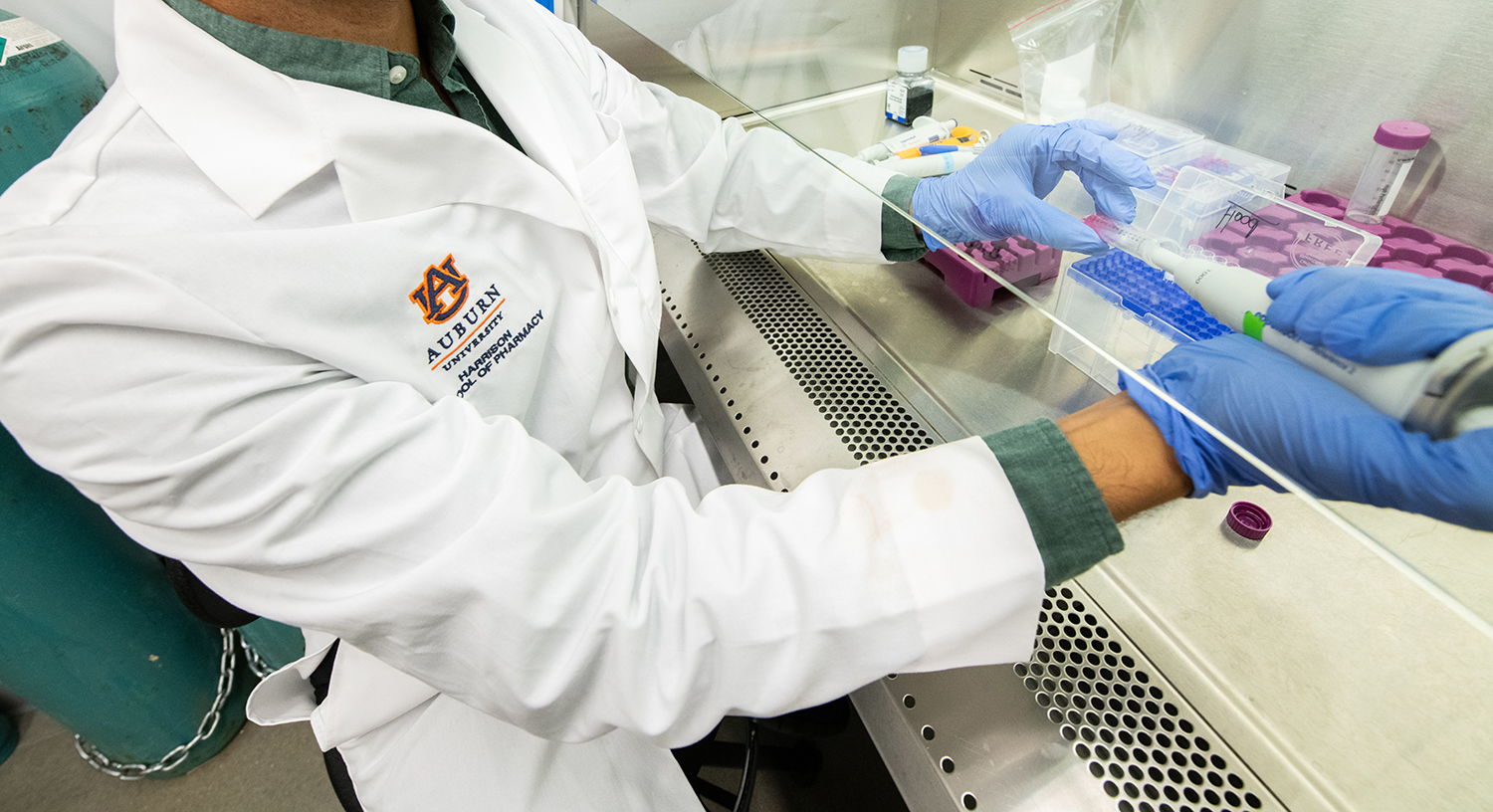
The Harrison College of Pharmacy is divided into three academic departments: Drug Discovery and Development, Health Outcomes Research and Policy, and Pharmacy Practice. Over the last five years, students and faculty from these departments have secured more than $6 million in external funding and have generated more than 360 scholarly publications.
Harrison School of Pharmacy faculty and graduate students benefit from extensive research infrastructure on the Auburn University campus. Shared microscopy resources include atomic force, confocal, scanning electron, and transmission electron microscopes. In vivo imaging resources include clinical and research (7 T) MRIs, a multispectral optoacoustic tomograph, and a co-axial luminescence, fluorescence and X-ray small animal imager. Animal care and use resources include a transgenic animal facility, multiple AAALAC-accredited animal care facilities, and research animal surgery, pathology, and histology support. Campus facilities provide access to a wealth of analytical and preparative tools, including DNA sequencing, peptide synthesis, flow cytometry, live cell fluorescence-activated cell sorting, mass spectrometry, nuclear magnetic resonance, and circular dichroism.
Infrastructure is in place to monitor and ensure compliance with research safety and regulatory standards, including standards regulating the use of recombinant DNA, radioactive materials, vertebrate animals, and human subjects. Investigators have access to rich IT resources, including campus-wide WiFi, an extensive collection of scientific e-journals, personal web and blog pages, access to centralized data storage facilities, and access to the Alabama Supercomputer Center.
The Department of Drug Discovery and Development offers dynamic opportunities for cutting-edge research and graduate education in all aspects of drug discovery and development. One objective is to prepare graduate students for careers as independent scientists by providing them with a strong basic science background and the ability to translate basic scientific discoveries into therapeutics.
Drug Discovery and Development faculty pursue research in a variety of areas, including neuroscience and neurodegenerative diseases, cardiovascular biology and disease, diabetes and other metabolic diseases, cancer, infectious diseases, forensic analytical chemistry, synthetic organic chemistry, and drug delivery, disposition and formulation.
The Department of Health Outcomes Research and Policy seeks to improve medication related outcomes, considering the perspective of patients, providers, and policymakers. This includes research of social and behavioral aspects of pharmaceutical care, research to maximize medication-related outcomes, comparative effectiveness research, drug safety research, and optimization of pharmaceutical care practices.
The overall goal is to improve effectiveness of pharmacotherapy and pharmacy practice through research. Some research is focused on understanding how factors such as costs, patient behavior, provider behavior, and health system organization influence medication use. Much of this research assesses how these factors interact to affect medication adherence, focusing largely on the interaction of patients and providers. Others approach patient behavior from an economics perspective, including behavioral economics and the study of how health policy affects health behavior and outcomes.
Research in the Department of Pharmacy Practice is focused on the implementation and analyses of collaborative health care models in hospitals and other health care settings, prospective and retrospective identification of optimal pharmacotherapy regimens for a variety of disease states, implementation and analyses of vaccination programs, and implementation and analyses of innovations in pharmacy education.